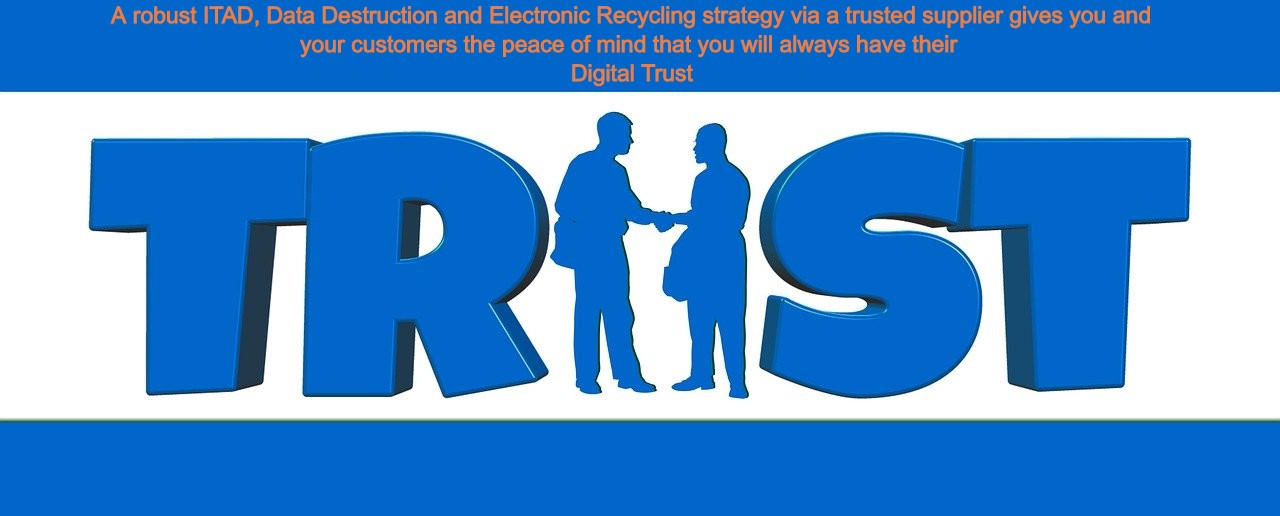The Importance of Digital Trust

The Importance of Digital Trust
Digital Trust is an essential corporate strategy which should penetrate every aspect of your business to inspire confidence in employees, clients and customers
As we enter our third decade of ‘digital’ disruption, we often hear more about the negative effects that digitisation has had on our lives than its many positives. From the spread of fake news and hacking scams, to data being misused on an industrial scale, a lack of trust is hampering both consumer confidence and the people who work in the industry, too.
As there is no single award or standard that proves that a company is digitally trustworthy, a ‘culture’ of trust must be fostered within a company which ultimately extends to its customers and contractors.
Broadly speaking, digital trust, like any trust, is when a person feels confident in a product or service. However, with digital trust, the people who are supplying the product or service must feel that trust too. If employees trust their company, they are more likely to stay. And if customers feel the same way, they’ll be more brand loyal.
A proactive approach to privacy and data protection helps organizations increase trust.
“Privacy is becoming a reason for consumers to purchase a product, in the same way that “organic,” “free trade” and “cruelty-free” labels have driven products sales in the past decade” – Bart Willemsen, Vice President Analyst, Gartner.
Once upon a time, people mainly bought products. If they worked, people were loyal. Nowadays, we purchase a lot more services, and from digital platforms too. Companies using such platforms are exposed to risks which are beyond their control. As companies rarely have full sight of their supply chain, trust is more important than ever.
We tend to be links within a corporate chain. In order not to be a weak link, digital trust is best divided into four key areas.
- Incorporating digital trust within your organisation
Adopting a policy of digital trust within a company does not mean making sure that the IT Department has a decent budget and that systems are updated. As the speed of digitisation accelerates, IT must be represented at the highest echelons within a company and their concerns must be listened too. A company’s digital strategy must be aligned to the core corporate strategy and funded accordingly, while a Privacy Officer should be appointed.
Furthermore, a mechanism must be in place for staff to report their fears about their company safe in the knowledge that they won’t be shot for being the messenger.
- GDPR and data ethics
We’re all aware of GDPR and the consequences for not complying. A company can get fined which can potentially lead to reputational damage and a loss of income. While it’s obviously important to follow the letter of the law, there’s also the spirit of the GDPR regulations, too.
Adhering to stringent data laws in one jurisdiction but reverting to old practices in another may not be illegal, but it’s certainly unethical. What’s right for one cohort of people, should be right for all. Nobody wants to be a second-class digital citizen.
- Building your brand
Digital trust is not something which can be rolled out like a patch to a software system and people reboot their PCs and all is well. Trust has to be developed, maintained and protected. Within a company, trust starts with systems and processes which inspire staff, and then it is imbued within the products and services which are consumed by customers.
However, you don’t achieve trust and remain static. Trust evolves over time, within the structure of your company and its products/services, but also in the intangible nature of trust which marketing addresses. Sponsoring local clubs, donating to charity, giving back to your community – a tradition of charity within an organisation inspires both your staff and customers.
- Weak link
Famously, the media baron William Randolph Hearst not only owned newspapers and printing presses, but the forests which made the trees which supplied the paper too. In short, he had control of the entire supply chain. The digital revolution has complicated our supply chains to such a degree that not even IT companies can be 100% confident in the stack which their products are built on.
Therefore, as much as it’s possible, supply chains must be rigorously scrutinised. If all companies take such an approach, the necessary layers of trust will build up and unreliable elements be removed. If you run an open, transparent and secure company, you will expect the same from your suppliers. Likewise, those that you are supplying into, will expect the same from you.
- IT Asset Disposition (ITAD) and digital trust
ITAD forms a key component of digital trust and a central role in a company’s digital strategy. How you dispose of old IT assets exposes your company to a myriad of legal, regulatory and ethical implications. Failure to clean data from old devices can lead to data breaches, while failure to dispose of them properly can lead to unintended consequences: the unethical disposal of e-waste can lead to the exploitation of child labour in developing countries.
Having a robust IT Asset Disposition, Data Destruction and Electronic Recycling strategy in place via a trusted supplier gives you and your customers the peace of mind that you will always have their Digital Trust.
For more information about Wisetek’s services, click here
Wisetek specializes in professional ITAD services including Data Destruction, Hard Drive Destruction, Hard Drive Disposal, Shredding, and Degaussing, from its 5 main facilities across the USA.





